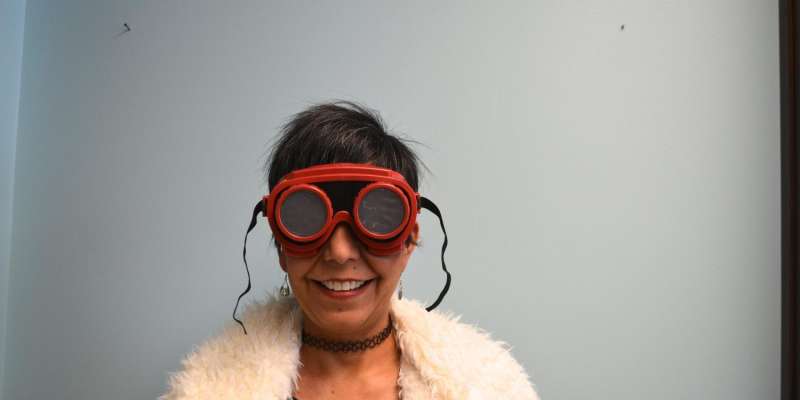New research shows role-playing disability promotes distress, discomfort and disinterest

Professionals in the fields of education and rehabilitation psychology have long used disability simulations to try to promote understanding and improve attitudes about persons with disabilities. To simulate blindness, for instance, participants might complete tasks while wearing blindfolds or goggles. Others use earplugs to mimic deafness. Others may navigate indoor and outdoor areas in a wheelchair. The idea is to boost empathy by giving people perspective on what it is like to have a disability.
However, a recent study published by Michelle Nario-Redmond, Ph.D., professor of psychology, reveals that disability simulations often result in feelings of fear, apprehension and pity toward those with disabilities, proving Nario-Redmond's thesis that disability simulations do more harm than good.
After conducting two experiments testing the effects of disability simulations on participants, Dr. Nario-Redmond and two of her former students, Dobromir Gospodinov '12 and Angela Cobb '16, reveal their findings in a paper titled, "Crip for a Day: The Unintended Negative Consequences of Disability Simulations," published by the American Psychological Association's journal, Rehabilitation Psychology (March 2017). A third study is underway to extend the impact of simulations on accessibility concerns and awareness of environmental barriers.
The study found that mimicking the effects of a disability for only a few minutes fails to account for the diverse coping mechanisms and innovative techniques persons with disabilities develop in long-term situations. Thus, momentarily experiencing the challenges a disability may create could cause participants to underestimate the true capabilities of persons with disabilities.
Nario-Redmond and emerging psychologists Gospodinov and Cobb suggest that future research should focus more on issues related to environmental accessibility rather than encouraging people to imagine themselves with a new disability.
"For those who are curious about disability issues, take the time to visit with real people [with disabilities] and lots of them. Get to know their diverse interests and accessibility concerns and ask how you can be an ally for disability rights," says Nario-Redmond.
On campus, Nario-Redmond and fellow psychology faculty consistently work to engage students through classes that teach how to design descriptive and experimental studies, test hypotheses and evaluate social issues.
In addition to teaching and publishing studies, Nario-Redmond is currently working on the final revisions of her book, "Ableism: The Causes and Consequences of Disability Prejudice." It will be published as a part of the Contemporary Social Issues Series for the Society for the Psychological Study of Social Issues, Wiley-Blackwell. Publication is scheduled for early 2018.
In the meantime, Nario-Redmond suggests that those interested in disability awareness check out the link below to find alternatives to disability simulations.
Find some alternatives to disability simulations here.
More information: Michelle R. Nario-Redmond et al. Crip for a Day: The Unintended Negative Consequences of Disability Simulations., Rehabilitation Psychology (2017). DOI: 10.1037/rep0000127















